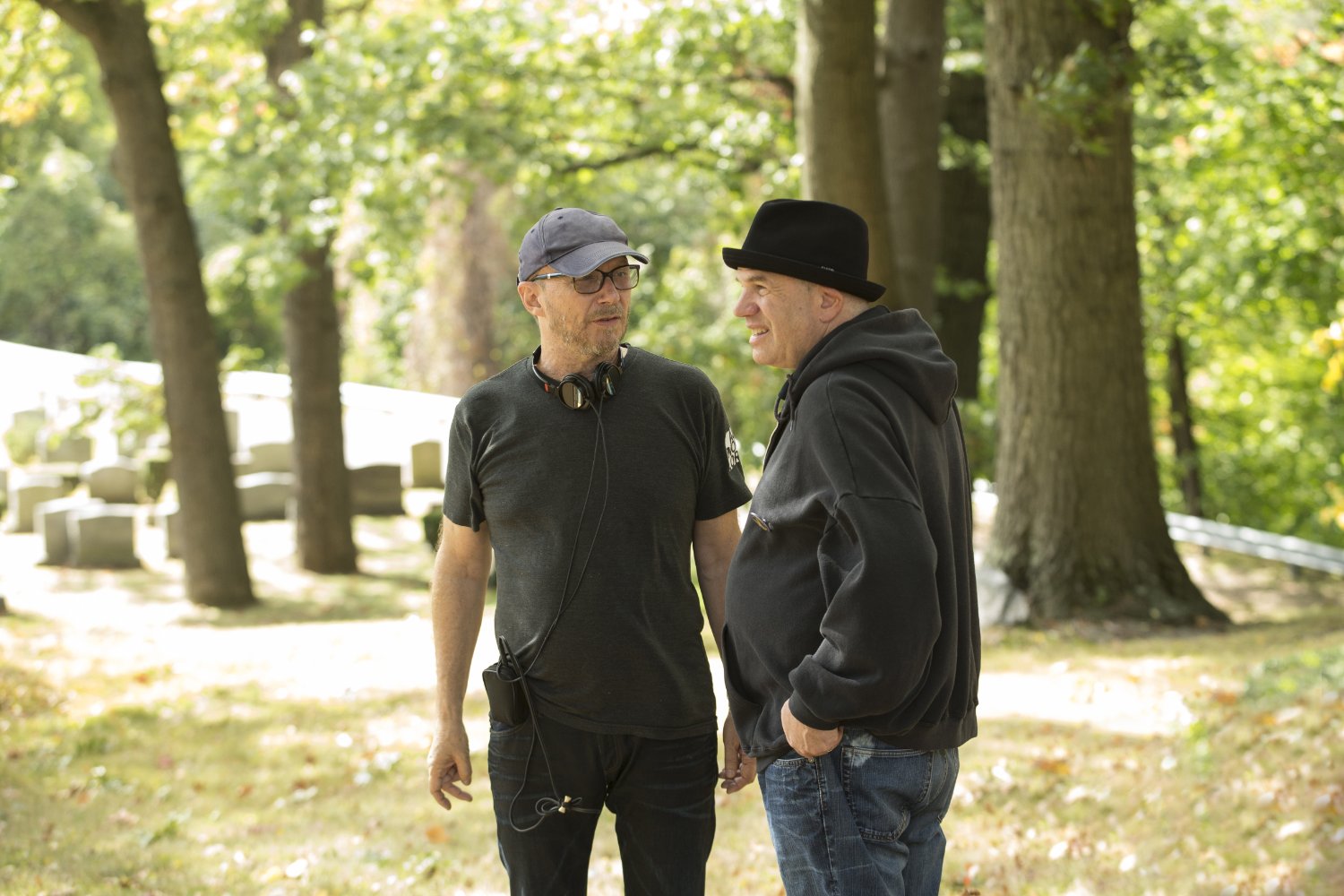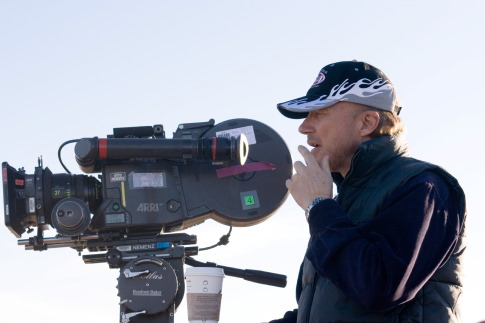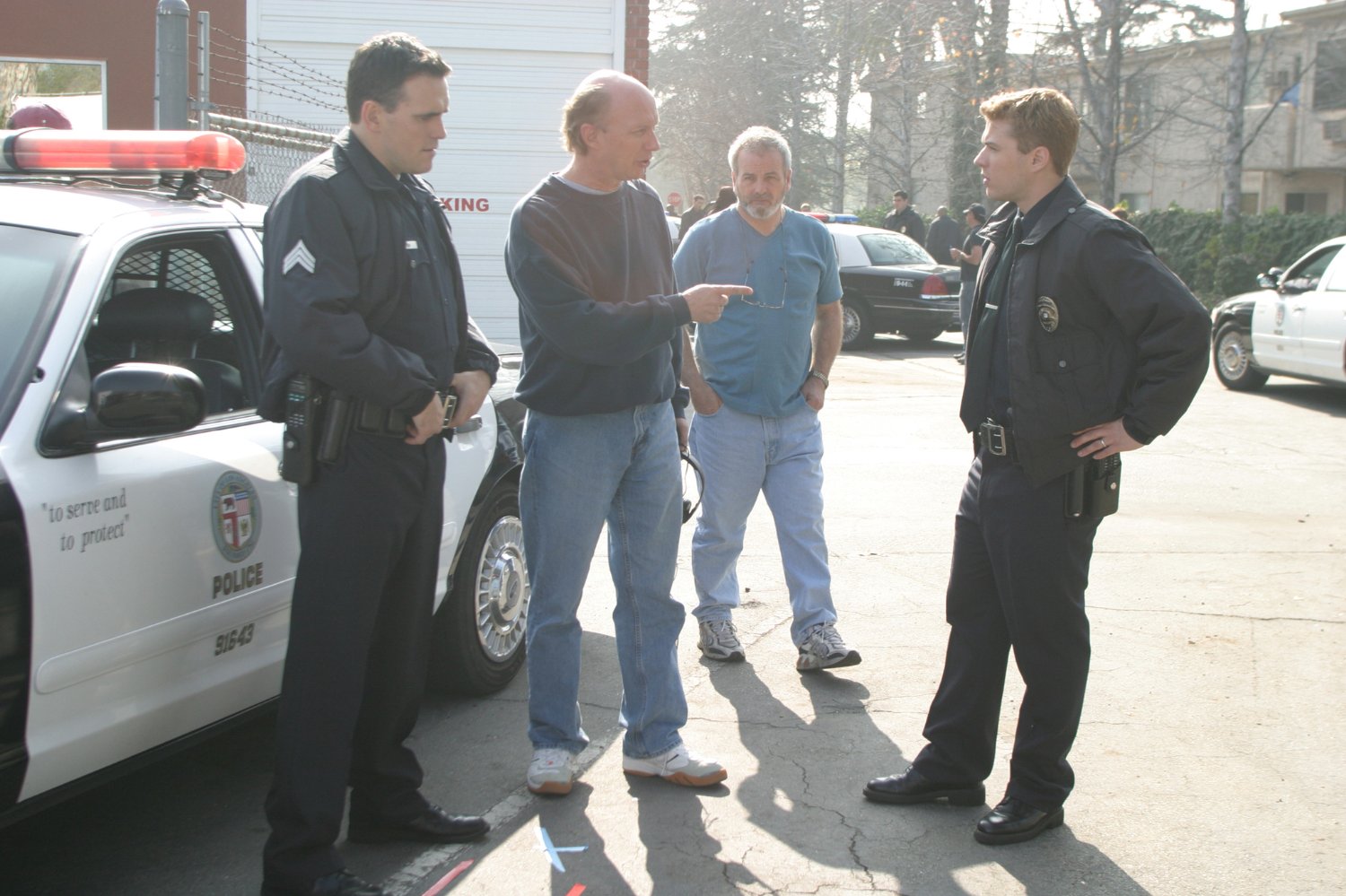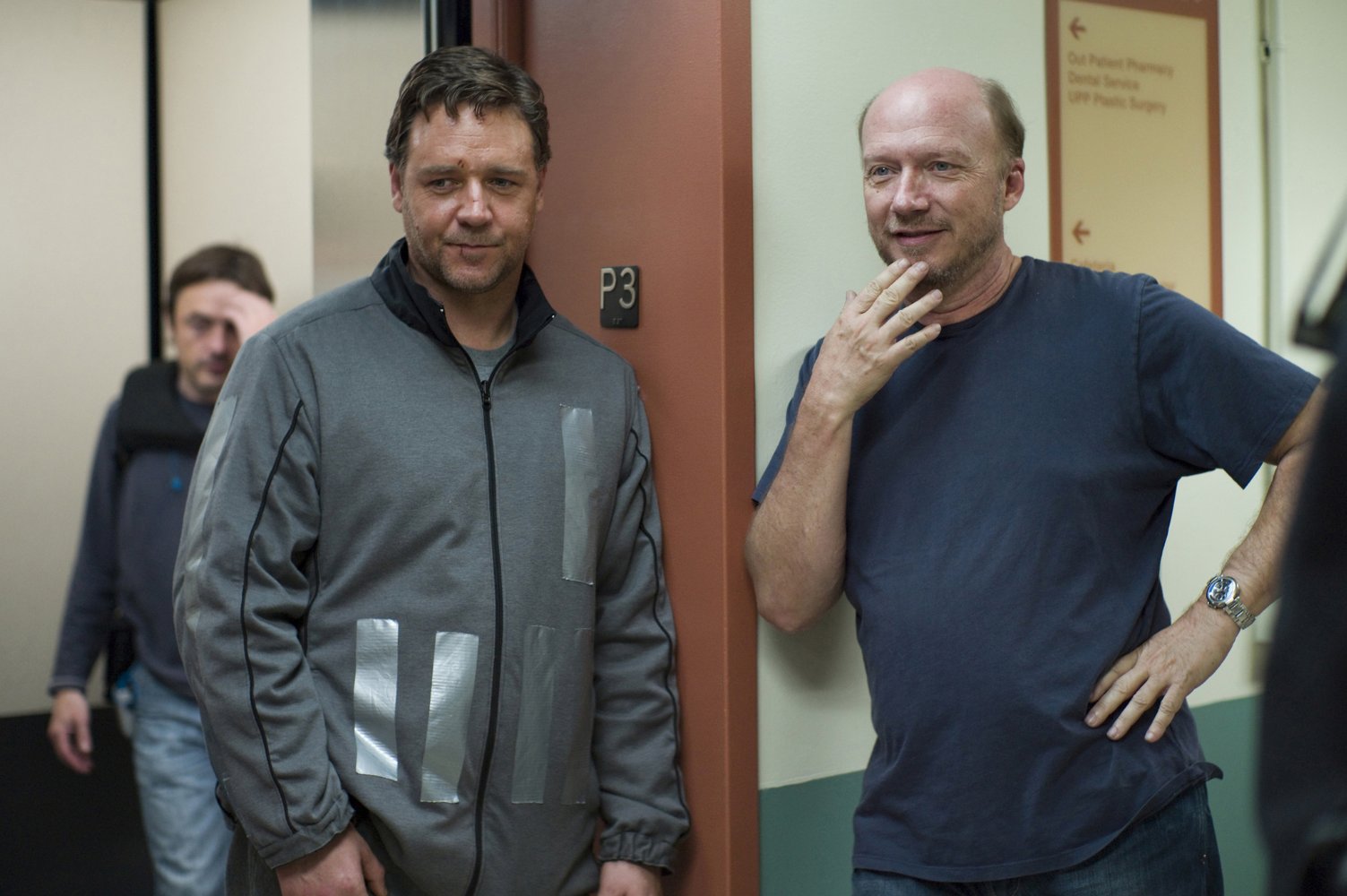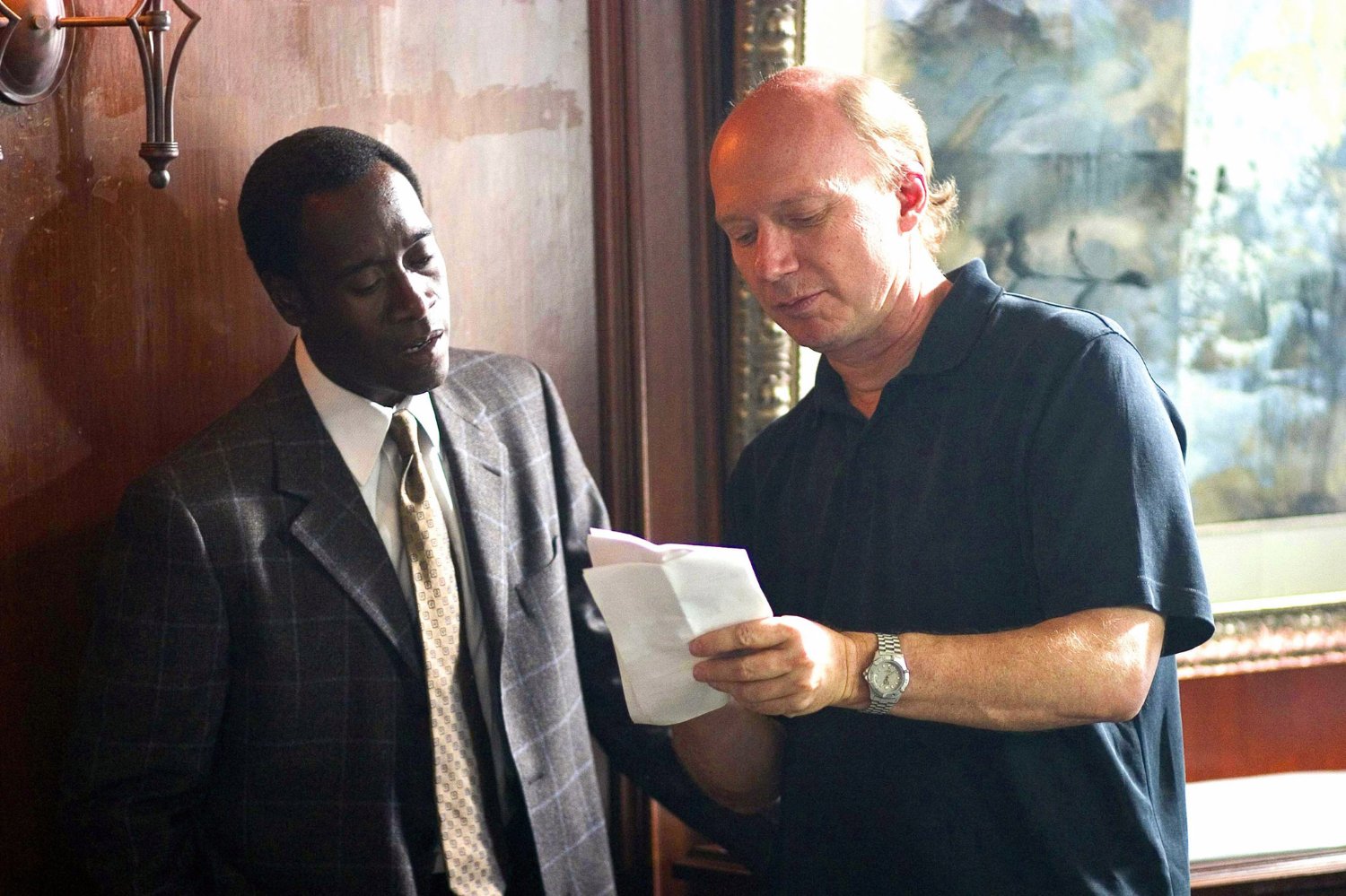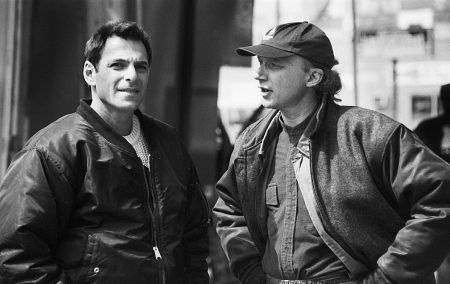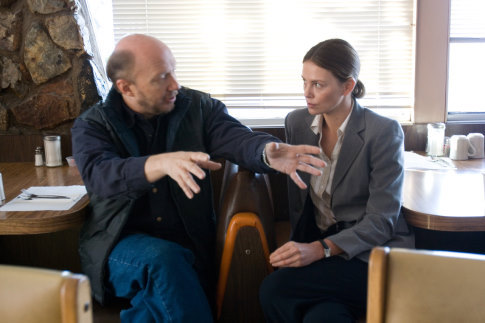
Paul Haggis
Birthday:
10 March 1953, London, Ontario, Canada
Birth Name:
Paul Edward Haggis
Height:
183 cm
Paul Haggis is the award-winning filmmaker who, in 2006, became the first screenwriter to write two Best Film Oscar winners back-to-back - Million Dollar Baby (2004) directed by Clint Eastwood, and Crash (2004) which he himself directed. For Crash (2004), he won Academy Awards for Best Picture and Best Original Screenplay. The film also received an...
Show more »
Paul Haggis is the award-winning filmmaker who, in 2006, became the first screenwriter to write two Best Film Oscar winners back-to-back - Million Dollar Baby (2004) directed by Clint Eastwood, and Crash (2004) which he himself directed. For Crash (2004), he won Academy Awards for Best Picture and Best Original Screenplay. The film also received an additional four nominations including one for Haggis' direction. Crash (2004) reaped numerous awards during its year of release from associations such as the IFP Spirit Awards, the Screen Actors Guild, and BAFTA.In 2006, Haggis' screenplays included the duo Clint Eastwood productions Flags of Our Fathers (2006) and Letters from Iwo Jima (2006), the latter earning him his third screenplay Oscar nomination. He also helped pen Casino Royale (2006), which garnered considerable acclaim for reinvigorating the James Bond spy franchise.In 2007, Haggis wrote, directed and produced In the Valley of Elah (2007) for Warner Independent Pictures, Samuels Media and Summit Entertainment. The film, which starred Tommy Lee Jones, Charlize Theron, and Susan Sarandon, was a suspense drama of a father's search for his missing son, who is reported AWOL after returning from Iraq. Jones earned a Best Actor Oscar nomination for his performance in the film. Haggis' latest film, The Next Three Days (2010), stars Russell Crowe, Liam Neeson, and Elizabeth Banks. It was produced by Highway 61 and Lionsgate Films. Hwy 61 is the production company Haggis formed with his friend and producing partner Michael Nozik. This is their first feature. It was released in November 2010.Haggis was born in London, Ontario, Canada and moved to California in his early 20s. For over two decades he has written, directed and produced television shows such as Thirtysomething (1987) and The Tracey Ullman Show (1987), Due South (1994), The Black Donnellys (2007) and also developed credits as a pup writer on many 'Norman Lear' sitcoms. He also created the acclaimed, if short-lived, CBS series EZ Streets (1996) which the New York Times cited as one of the most influential shows of all time, noting, that without it "there would be no Sopranos."Haggis is equally committed to his private and social concerns. He is the founder of Artists for Peace and Justice. Under this umbrella, many of his friends in the film business have come forward to build schools and medical clinics serving the children of the slums of Haiti.He divides his time between residences in Los Angeles and New York. Show less «
I agreed to write the pilot because I thought it would just go away, but it became this huge hit and I remember waking up at 3 or 4 in the m...Show more »
I agreed to write the pilot because I thought it would just go away, but it became this huge hit and I remember waking up at 3 or 4 in the morning in a cold sweat, dripping wet. I mean, I was drenched. I just pictured my tombstone and it said: "Paul Haggis: Creator of Walker, Texas Ranger (1993)." So the impetus for making these movies is really just to wipe that image from my mind. (on his decision to move from television to films like Crash (2004)) Show less «
A lot of films made me love the movies, everything from Hitchcock (Alfred Hitchcock) to Godard (Jean-Luc Godard). But the ones that really g...Show more »
A lot of films made me love the movies, everything from Hitchcock (Alfred Hitchcock) to Godard (Jean-Luc Godard). But the ones that really grabbed me were Costa-Gavras' films like Z (1969) and État de siège (1972). Show less «
The worst thing you can do to a filmmaker is to walk out of his film and go, "That was a nice movie." But if you can cause people to walk ou...Show more »
The worst thing you can do to a filmmaker is to walk out of his film and go, "That was a nice movie." But if you can cause people to walk out and then argue about the film on the sidewalk ... I think we're all seeking dissension, and we love to affect an audience. Show less «
Artists need to be outsiders in order to really view what's going on. That little bit of detachment has been great for me being down here. I...Show more »
Artists need to be outsiders in order to really view what's going on. That little bit of detachment has been great for me being down here. I look like everyone else; I almost sound like everyone else, except for the odd time I say chesterfield or serviette. But I am different. And I am proud to be a Canadian. Show less «
As artists, we have to be brave. If we aren't brave, we aren't artists.
As artists, we have to be brave. If we aren't brave, we aren't artists.
Talking about Scientology (in the New Yorker): Demands for donations never seemed to stop. They used friends and any kind of pressure they c...Show more »
Talking about Scientology (in the New Yorker): Demands for donations never seemed to stop. They used friends and any kind of pressure they could apply. I gave them money just to keep them from calling and hounding me. Show less «
[Talking about Walker, Texas Ranger (1993)] It was the most successful thing I ever did. Two weeks of work. They never even used my script!
[Talking about Walker, Texas Ranger (1993)] It was the most successful thing I ever did. Two weeks of work. They never even used my script!
What I love about writing is the contradictions we all embody as human beings.
What I love about writing is the contradictions we all embody as human beings.
[on whether he thinks Scientology is a cult] Of course it is, it's a system of belief that you've got these people inside this fortress who ...Show more »
[on whether he thinks Scientology is a cult] Of course it is, it's a system of belief that you've got these people inside this fortress who won't look out, who won't look at any criticism, who can't bear to think that everyone is against them. Show less «
[on his film Crash (2004) winning the Oscar for Best Picture] Was it the best film of the year? I don't think so, there were great films tha...Show more »
[on his film Crash (2004) winning the Oscar for Best Picture] Was it the best film of the year? I don't think so, there were great films that year. Good Night, and Good Luck. (2005) - amazing film. Capote (2005) - terrific film. Ang Lee's Brokeback Mountain (2005), great film. And Spielberg's Munich (2005). I mean please, what a year. Crash, for some reason, affected people, it touched people. And you can't judge these films like that. I'm very glad to have those Oscars. They're lovely things. But you shouldn't ask me what the best film of the year was because I wouldn't be voting for Crash, only because I saw the artistry that was in the other films. Now however, for some reason that's the film that touched people the most that year. So I guess that's what they voted for, something that really touched them. And I'm very proud of the fact that Crash does touch you. People still come up to me more than any of my films and say: "That film just changed my life." I've heard that dozens and dozens and dozens of times. So it did its job there. I mean, I knew it was the social experiment that I wanted, so I think it's a really good social experiment. Is it a great film? I don't know. Show less «

Himself, Himself - Film Director
